Lebanon’s fragile peace under fire - By Michael Jansen, The Jordan Times
Despite last November's truce which ended Israel's onslaught on Lebanon, the Israeli army continues to attack that country on a daily basis. While former Interior Minister Bassam Mawlawi described the situation as "very dangerous,” Finance Minister Yassin Jaber asked US White House officials to exert pressure on Israel to abide by the cease-fire.
At the start of October, the UN reported Israeli strikes had killed 103 civilians, including 16 children, in Lebanon since the ceasefire took effect. The UN said that Israeli soldiers had abducted at least 19 civilians from the south and that 80,000-100,000 people remain displaced and unable to return to their homes.
After months of cross-border firing, Israel launched an all-out war on Lebanon in September 2024, with the objective of defeating Hezbollah which was seriously weakened during the hostilities. A ceasefire agreement was reached two months later. This was supposed to bring peace and allow for reconstruction, but Israel has not given Lebanon a moment of peace. While Hizbollah has withdrawn its fighters from the border to the Litani River in accordance with the truce, Israeli troops have not evacuated five strategic hill positions, occupy several villages and go in and out of others. On Sunday the Israeli army launched a five-day, large-scale military exercise along the border with Lebanon and in Israeli communities in the north. This operation and Israel's frequent attacks are designed to keep up pressure on Lebanon to agree on indirect talks to resolve disputed issues.
Lebanese President Joseph Aoun has rejected negotiations under fire and demanded the end of Israeli attacks and full Israeli withdrawal from the South after which there could be indirect negotiations mediated by the US with the aim of fully implementing the ceasefire deal. Aoun awaits the early arrival of a US envoy to see what Washington proposes.
Despite uncertainty in the south, Lebanon's economy has achieved 5 per cent growth, the highest level since 2011. Economy Minister Amer Bisat told a joint meeting of the International Monetary Fund and the World Bank that "after years and years of no growth, we are finally seeing some growth, but this is not the kind of sustainable growth we want." The government has been pushing for economic reforms while Lebanese continue to struggle with shortages of fuel, electricity, and medications and the lack of reliable banks and financial institutions. Lebanese put their trust in family connections, community networks, and remittances from abroad. Many have migrated from villages and small towns to Beirut, Tripoli and Sidon while young people emigrate to get education and find jobs. The government is calling for an international conference to promote reconstruction in the south and reviving the economy.
Amnesty International has accused Israel of committing war crimes in southern Lebanon by blowing up and bulldozing homes, mosques, roads, parks, and football fields and destroying farmland "without apparent military necessity." Consequently, tens of thousands of southern Lebanese villagers have nothing to return to. Amnesty recommends that the Lebanese government should seek reparations and calls on the International Criminal Court to prosecute perpetrators of crimes.
Insecurity in the south remains a serious concern. Meeting in New York last Friday, the UN Security Council declared full support for the UN Interim Force in Lebanon (UNIFIL) and urged all sides to take ‘all necessary measures’ to guarantee the safety of peacekeepers. They have reported violations of UN resolutions, including secret weapons caches which have not been eliminated, presumably by Hizbollah and other militant groups. The council praised the Lebanese army and called for strong international backing to ensure the “effective and sustainable deployment” of the Lebanese army south of the Litani River. UNIFIL also continues to observe Israeli military activities in the area of UN force operations and has tracked Israeli mortar fire into Lebanon. Israeli soldiers have also “pointed infrared lasers at UNIFIL patrol vehicles. We once again stress these acts of interference must stop," stated Stephane Dujarric, spokesman for UN Secretary-General Antonio Guterres.
Preparations are in train for an international conference to support the Lebanese Army by the end of 2025 French President Emmanuel Macron told Aoun. Upgrading the Lebanese army is an important priority as the army not only has to complete the disarmament of Hizbollah but also must defend the south and impose quiet along the border with Israel. The venue of the conference has yet to be decided but Paris is the fallback option. The US has given approval for the event. The army command seeks weapons and equipment to enhance its capabilities in the south and countering smuggling across the Syrian border.
As the former colonial power, France takes seriously efforts to promote Lebanon’s stability and political and economic interests in order to maintain the close connection with its closest Middle Eastern ally to protect Paris’ regional interests.
Latest News
-
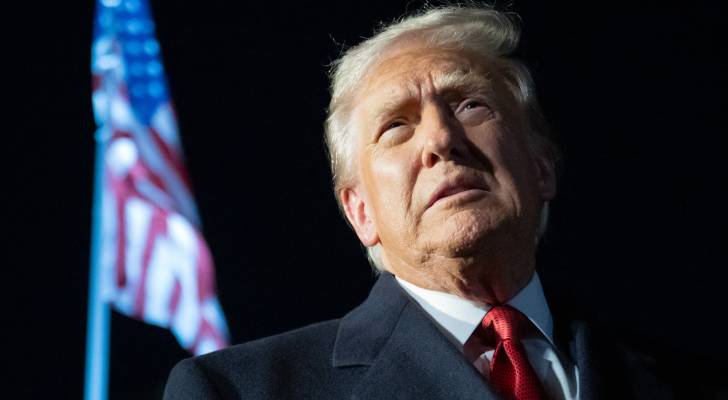 Trump says North Korea is “sort of a nuclear power”
Trump says North Korea is “sort of a nuclear power”
-
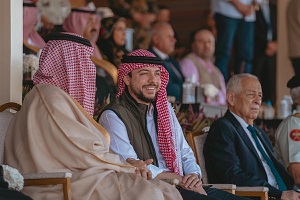 Crown Prince attends closing ceremony of Arab Camel Racing Cup
Crown Prince attends closing ceremony of Arab Camel Racing Cup
-
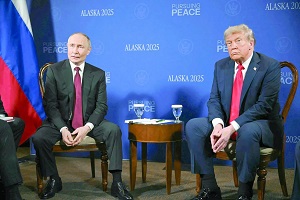 Putin Directs Drills of Russian Nuclear Forces as His Summit with Trump is Put on Hold
Putin Directs Drills of Russian Nuclear Forces as His Summit with Trump is Put on Hold
-
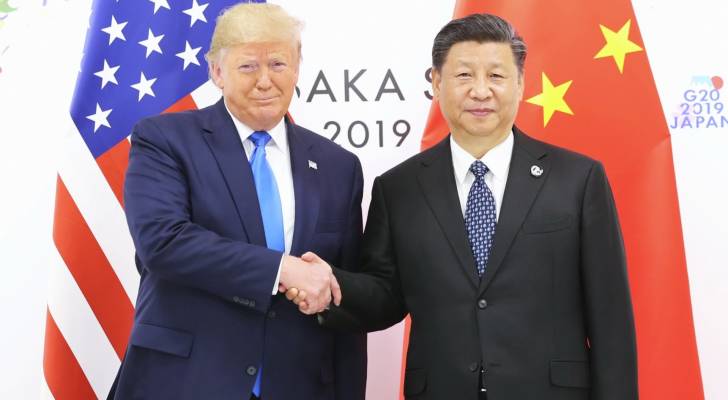 Trump aims to meet with China's Xi Jinping during Asia tour
Trump aims to meet with China's Xi Jinping during Asia tour
-
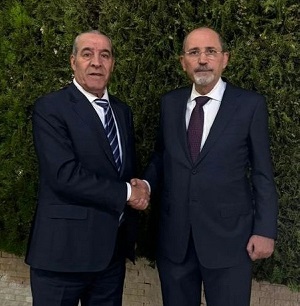 Jordan, Palestine hold high-level talks on Gaza ceasefire, peace efforts
Jordan, Palestine hold high-level talks on Gaza ceasefire, peace efforts